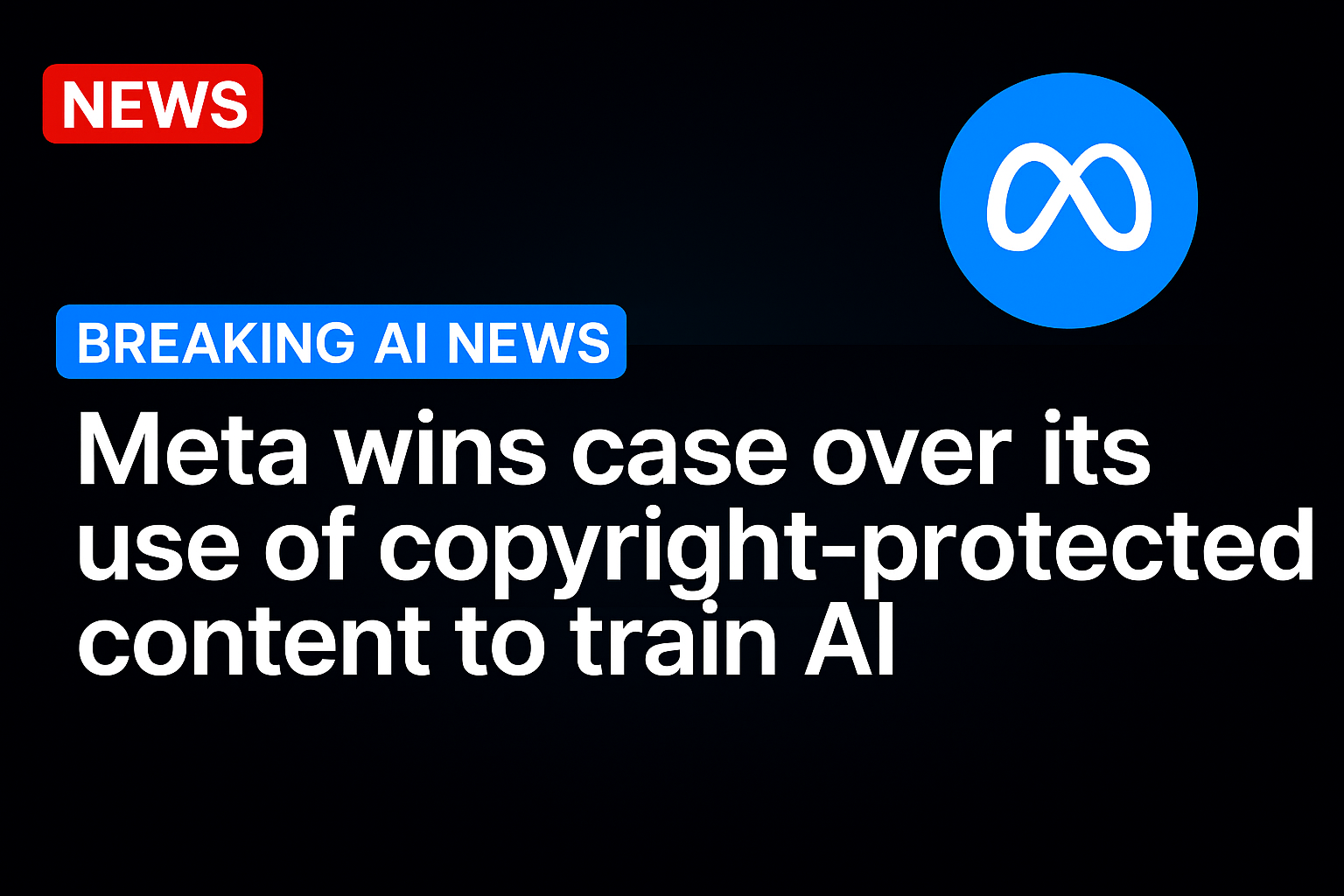One of the most significant (yet less flashy) considerations of the new wave of generative AI tools is the copyright implications of such, both in terms of usage (can you own the rights to an AI-generated work?) and generation (are AI projects stealing artists’ work?).
And both, at least at present, fall into somewhat awkward legal territory, because copyright laws, as they exist, haven’t been designed to cater to AI content. Which means that, technically, it remains difficult to prosecute, on either front.
Today, Meta has had a big court win on this front, with a federal judge ruling that Meta did not violate copyright law in training its AI models on original works.
Back in 2023, a group of authors, including high-profile comedian Sarah Silverman, launched legal action against both Meta and OpenAI over the use of their copyrighted works to train their respective AI systems. The authors were able to show that these AI models were capable of reproducing their work in highly accurate form, which they claim demonstrates that both Meta and OpenAI used their legally protected material without consent. The lawsuit also alleges that both Meta and OpenAI removed the copyright information from their books to hide this infringement.
In his assessment, Judge Vince Chhabria ruled that Meta’s use of these works was considered “transformative,” in that the purpose of Meta’s process is not to re-create competing works, necessarily, but to facilitate all new uses of their language.
As per the judgment:
“The purpose of Meta’s copying was to train its LLMs, which are innovative tools that can be used to generate diverse text and perform a wide range of functions. Users can ask Llama to edit an email they have written, translate an excerpt from or into a foreign language, write a skit based on a hypothetical scenario, or do any number of other tasks. The purpose of the plaintiffs’ books, by contrast, is to be read for entertainment or education.”
As such, the judge ruled that because the re-use of the works was not intended to create a competing market for these works, the application of “fair use” in this case applies.
But there are a lot of provisos in the ruling.


